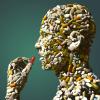
omega-3s + uridine + choline
#31
Posted 15 May 2009 - 03:27 AM
#32
Posted 15 May 2009 - 02:59 PM
#33
Posted 26 May 2009 - 11:18 PM
I have noticed a significant lift in mood in the several weeks I've been taking CDP-choline with fish oil.
#34
Posted 04 June 2009 - 02:02 PM
http://www3.interscience.wiley.com/journal/121417860/abstract?CRETRY=1&SRETRY=0
Citicoline enhances frontal lobe bioenergetics as measured by phosphorus magnetic resonance spectroscopy M. M. Silveri 1 2 3 *, J. Dikan 1, A. J. Ross 1 2 3, J. E. Jensen 2 3, T. Kamiya 4, Y. Kawada 4, P. F. Renshaw 2 3, D. A. Yurgelun-Todd 1 2 31Cognitive Neuroimaging Laboratory, McLean Hospital, Belmont, MA, USA
2Brain Imaging Center, McLean Hospital, Belmont, MA, USA
3Department of Psychiatry, Harvard Medical School, Boston, MA, USA
4Healthcare Products Development Center, Kyowa Hakko Kogyo Co., Ltd, Tsukuba, Ibaraki, Japan
AbstractCiticoline supplementation has been used to ameliorate memory disturbances in older people and those with Alzheimer's disease. This study used MRS to characterize the effects of citicoline on high-energy phosphate metabolites and constituents of membrane synthesis in the frontal lobe. Phosphorus (31P) metabolite data were acquired using a three-dimensional chemical-shift imaging protocol at 4 T from 16 healthy men and women (mean ± SD age 47.3 ± 5.4 years) who orally self-administered 500 mg or 2000 mg Cognizin® Citicoline (Kyowa Hakko Kogyo Co., Ltd, Ibaraki, Japan) for 6 weeks. Individual 31P metabolites were quantified in the frontal lobe (anterior cingulate cortex) and a comparison region (parieto-occipital cortex). Significant increases in phosphocreatine (+7%),
 -nucleoside triphosphates (largely ATP in brain, +14%) and the ratio of phosphocreatine to inorganic phosphate (+32%), as well as significant changes in membrane phospholipids, were observed in the anterior cingulate cortex after 6 weeks of citicoline treatment. These treatment-related alterations in phosphorus metabolites were not only regionally specific, but tended to be of greater magnitude in subjects who received the lower dose. These data show that citicoline improves frontal lobe bioenergetics and alters phospholipid membrane turnover. Citicoline supplementation may therefore help to mitigate cognitive declines associated with aging by increasing energy reserves and utilization, as well as increasing the amount of essential phospholipid membrane components needed to synthesize and maintain cell membranes.
-nucleoside triphosphates (largely ATP in brain, +14%) and the ratio of phosphocreatine to inorganic phosphate (+32%), as well as significant changes in membrane phospholipids, were observed in the anterior cingulate cortex after 6 weeks of citicoline treatment. These treatment-related alterations in phosphorus metabolites were not only regionally specific, but tended to be of greater magnitude in subjects who received the lower dose. These data show that citicoline improves frontal lobe bioenergetics and alters phospholipid membrane turnover. Citicoline supplementation may therefore help to mitigate cognitive declines associated with aging by increasing energy reserves and utilization, as well as increasing the amount of essential phospholipid membrane components needed to synthesize and maintain cell membranes.
#35
Posted 26 December 2009 - 06:44 AM
While much of the research on CDP Choline is very positive, it does seem to have negative reactions to it in some people like increased nervousness, increased perceived stress, lower mood, increase rumination and thought intensity, worse sleep, etc...
A good argument as to why CDP Choline (cytidine-5-diphosphocholine) may be inferior to Uridine/Triacetyluridine (TAU) and even standalone Cytidine comes from E.A.H. on his blog postings:
http://hardcorephysi...itfalls-in.html
FRIDAY, FEBRUARY 20, 2009
Potential "Psychiatric Pitfalls" in the Context of Antiaging and Sports Nutrition, etc.
The authors of this article [Tamminga et al., 1977: (http://www.ncbi.nlm....v/pubmed/869054)] discuss the fact that choline itself, administered as free choline (as a choline salt, such as choline chloride, etc.), or choline-containing compounds, such as phosphatidylcholine (lecithin) or alpha-glycerophosphocholine (GPC), caused severe depression in two patients in their study. The authors note that excessive cholinergic activity, such as can be induced by drugs that inhibit the breakdown of acetylcholine (ACh), which is produced from choline in the central nervous system (CNS), can produce depression, and this phenomenon is well-known [Dilsaver, 1986: (http://www.ncbi.nlm..../pubmed/2435781); Dilsaver, 1986: (http://www.ncbi.nlm..../pubmed/3517080); Overstreet and Djuric, 2001: (http://www.ncbi.nlm....pubmed/12000038); Fritze et al., 1988: (http://www.ncbi.nlm..../pubmed/3244788)]. Those aren't perfect examples, but cholinergic drugs or ACh precursors, such as choline, tend to antagonize dopaminergic and noradrenergic/adrenergic transmission in the brain. That's an imprecise statement, but there's a vast amount of evidence to show that it's the case. In Parkinson's disease, for example, cholinergic drugs worsen symptoms, and anticholinergic drugs tend to enhance dopaminergic activity and relieve involuntary motor symptoms, etc. The monoaminergic-cholinergic antagonism tends to occur in areas of the brain that regulate both motor control and affective or cognitive functioning. In any case, people seem to have forgotten this phenomenon or to not be aware of it, because choline is added to all sorts of supplements. In my opinion, choline, in the absence of some evidence that a person has a deficit in cholinergic transmission in the brain, is more likely to produce depressive symptoms than it is to enhance cognitive functioning or produce some other nonspecific "brain-boosting" effect. Dopaminergic and noradrenergic activity are, in my opinion, much more important for the "everyday" cognitive functions, such as in the context of the "working memory" that depends on the activities of neurons in the prefrontal cortex, than cholinergic activity is.
This is an oversimplification, but there are some disturbing articles on the effects that choline can have. Lyoo et al. (2003) [Lyoo et al., 2003: (http://www.ncbi.nlm....pubmed/12895208)] found that oral choline caused a generalized depletion of purines from the brains of people with bipolar disorder, and the authors had expected this to occur. Purine depletion has been associated with major depression in some people (Renshaw et al., 2001, cited in link), and Renshaw et al. (2001) suggested that the replenishment of adenosine by S-adenosylmethionine could be a mechanism by which S-adenosylmethionine can relieve depression [see here for Renshaw, 2001: (http://hardcorephysi...ailability.html)]. I probably don't need to say it, but, in my opinion, those facts provide more evidence of the potential for choline to worsen mood, etc. The idea that such a drastic depletion of purines would only occur in people who have been diagnosed with a psychiatric condition makes, in my opinion, no sense at all. In a similar vein, Carlezon et al. (2002) [Carlezon et al., 2002: (http://www.ncbi.nlm....pubmed/12022961)] found that choline produced effects, in an animal model of depression, consistent with a worsening of depression. When the researchers gave the rats cytidine-5'-diphosphocholine (a.k.a. citicoline, citicholine, CDP-choline, etc.), there was no net effect in the model of depression. Carlezon et al. (2002) found, however, that cytidine, by itself, produced an antidepressant effect. This is consistent with the articles showing antidepressant effects of uridine in animal models [one example: Carlezon et al., 2005: (http://www.ncbi.nlm....pubmed/15705349)]. (They might just try leaving out the omega-3 fatty acids, in my opinion, but that's not relevant to the discussion.) The article by Carlezon et al. (2002) shows, in my opinion, that the choline that's liberated from CDP-choline (it's hydrolyzed into choline and cytidine in the intestinal tract and elevates plasma uridine, but not cytidine, in humans) doesn't do much of anything except block the antidepressant effect of cytidine. CDP-choline continues to be talked-up in the literature, and no one seems to be aware of the fact that using cytidine by itself would, in my opinion, be a much more sensible approach to increasing phosphatidylcholine levels in the brain (in comparison to cytidine and choline together).
http://hardcorephysi...activation.html
WEDNESDAY, APRIL 8, 2009
Adenosine, PKA Activity, CREB Activation, Synapsin I Activation, and the Actions of Antidepressants
...I also think CDP-choline, mentioned in one of those lists of articles, would not be likely to produce antidepressant effects in humans and would not be a good "substitute" for cytidine itself, given that CDP-choline can increase choline availability to the brain. But that's just my opinion
http://hardcorephysi...-depletion.html
THURSDAY, JUNE 25, 2009
Deoxyribonucleotides in mtDNA Depletion; Triacetyluridine and Uridine in Psychiatric Disorders and Purine Salvage, etc.
...(but CDP-choline is not the same and has not been consistently shown to produce antidepressant effects). (Cytidine elevates plasma uridine in humans, not plasma cytidine, as in rats [Wurtman et al., 2000: (http://www.ncbi.nlm....pubmed/10974208)]) Rather, the choline derived from it would be expected to be depressogenic, in my opinion and the opinions of many others [Janowsky et al., 1984: (http://cat.inist.fr/...&cpsidt=8902345); (http://hardcorephysi...itfalls-in.html)]. Brown et al. (2007) found no mood improvement from CDP-choline (citicoline) [Brown et al., 2007: (http://www.ncbi.nlm....pubmed/17873684)]. Maybe if they'd removed the choline from it or, rather, used cytidine, they would have produced mood improvements, as shown here [Carlezon et al., 2002: (http://www.ncbi.nlm....pubmed/12022961)] and discussed in a past posting (http://hardcorephysi...itfalls-in.html) and implied in the article by Yoon et al. (2009), cited above. These are just some run-of-the-mill, obnoxious statements, but it's moving up on 20 years of research on CDP-choline, going round and round, producing miniscule elevations in plasma uridine in response to it, and no one seems to be aware that free choline, one of the metabolites of CDP-choline that's liberated in the GI tract, can cause ATP depletion and severe depression, etc. (Janowsky et al., 1984, cited above). TAU elevates plasma uridine something like 15-fold higher than CDP-choline, at maybe 3 times an equimolar dose (so 3X moles of TAU produces a Cmax of plasma uridine about 15 times the Cmax from X moles of CDP-choline, in my opinion, and doesn't provide choline to negate the supposed mood-elevating effect). In any case, the Janowsky et al. (1984) article discusses a lot of research showing similar effects from cholinergic drugs...
http://hardcorephysi...e-research.html
THURSDAY, JUNE 25, 2009
More Appalling Choline Research
This article [Sidransky and Farber, 1960: (http://www.ncbi.nlm....pubmed/14446433)] shows that choline oxidase activity is ~60-fold (2408/40 uL O2 uptake/hr/g ww liver) higher in the rat liver than in the human liver, and it's ~17 times higher in the rat liver than in the monkey liver (Sidransky and Farber, 1960). Maybe that's why free choline caused liver toxicity in baboons [Lieber et al., 1985: (http://www.ncbi.nlm..../pubmed/4018729)]. Uridine increases phosphatidylcholine and endogenous CDP-choline in the brains of gerbils or rats [Wang et al., 2007; Wurtman et al., 2006; Cansev et al., 2005: (http://scholar.googl...man Wang Cansev)], but, as discussed in the last posting, uridine (or cytidine) have produced antidepressant effects (but CDP-choline can worsen depression in animal models and has not, in my opinion, elevated mood in any consistent way in the endless human trials testing it) (http://hardcorephysi...-depletion.html). One way of understanding that is that the cytidylyltransferase pathway of phosphatidylcholine formation serves to salvage choline and is ATP-dependent, to the extent that CDP-choline formation depends on ATP-dependent CTP formation. But CTP formation indirectly depends on the overall cytidine nucleotide pool, and exogenous uridine or triacetyluridine elevate all pyrimidines and also maintain ATP levels in the brain and elsewhere, etc. In contrast, free choline would be expected, in my opinion, to overwhelm the ATP-buffering capacities of neurons and astrocytes and increase ATP consumption by serving as a substrate for choline kinase, thereby potentially depleting ATP [as discussed, in part, by Lyoo et al., 2003: (http://scholar.googl...urine&hl=en&lr=)]. Part of the reason that could occur is that, as discussed above, humans display low hepatic choline oxidase activity.
It gets to be upsetting to see this type of thing [(http://scholar.googl...phosphocholine"); (http://scholar.googl...-acetyluridine")]. There's been more research on triacetyluridine lately, but it's been 20 years that CDP-choline has been researched. People realize there's something there, something of value (i.e. the cytidine moiety), but the choline moiety (or, rather, the elevation in plasma free choline in response to its liberation) keeps *ruining* the results, in my opinion, of these trials. CDP-choline was researched in multicenter trials for the treatment of stroke, and what they were testing was essentially very-low-dose uridine (because CDP-choline elevates plasma uridine and not cytidine, as cited in the last posting) and free choline, in my opinion. Given that free choline can cause ATP depletion in people whose cells cannot resynthesize ATP efficiently, for whatever reasons (Lyoo et al., 2003), it doesn't sound too good to overload the brain, especially of a person who's had a stroke, with something that could deplete ATP. Free choline also increases in response to NMDA receptor activation, and glutamatergic activity would be increased after a stroke. This is not completely relevant, but Savci et al. (2002) [Savci et al., 2002: (http://www.ncbi.nlm....pubmed/12012025)(http://farmakoloji.u...ne-Naunyn02.pdf)] found that cytidine did not cause the kind of bizarre effect, which is basically pathological, in my opinion, of increasing vasopressin release during hemorrhagic shock in rats. The authors say that vasopressin release was augmented by the hemorrhage anyway, and osmoregulatory pathologies following intracranial hemorrhages are essentially going to be a given, in my opinion. So it doesn't sound very good to me to exacerbate those effects, as free choline could, in my opinion. Those studies using intracerebroventricular administrations of compounds can be strange, but the point is to provide a crude comparison. The divergent effects can't be understood solely in terms of changes in cholinergic transmission, although researchers have found that exogenous uridine or cytidine can elevate acetylcholine levels by increasing CTP and CDP-choline levels and recycling choline, essentially [Wang et al., 2007: (http://scholar.googl...e acetylcholine)]. But the effects of exogenous uridine or cytidine on brain functioning would be expected to be very different from the effects of exogenous CDP-choline, in my opinion, despite the fact that both treatments may elevate acetylcholine levels, to some extent. In reality, triacetyluridine and uridine and cytidine do not behave like "cholinergic" drugs, by any stretch of the imagination, in my opinion. In any case, these are just my opinions, and this is just my way of expressing my pronounced dissatisfaction with the progression of research in this area.
http://hardcorephysi...ne-prodrug.html
FRIDAY, JULY 10, 2009
Triacetyluridine (a Uridine Prodrug) and Uridine
...Triacetyluridine, a prodrug of uridine that elevates plasma uridine, is, in my opinion, many times more potent than CDP-choline, for various purposes, and does, in my opinion, have some potential in the context of depression. Triacetyluridine and pyrimidines in general have only been tested in a few trials, however, and none of my opinions should be viewed as being medical statements or as statements that are anything other than my opinions. Triacetyluridine also has the potential to be useful, in my opinion, in combination with highly-soluble salts of adenosine monophosphate or adenosine triphosphate or other purine ribonucleotides, but that's a separate consideration that I've discussed, in tremendous detail, in past postings. In my opinion, CDP-choline has the potential to produce a depressogenic effect, in some cases, and to do so by supplying free choline. CDP-choline elevates plasma uridine and choline, whereas triacetyluridine elevates plasma uridine but not plasma choline
...I took triacetyluridine ... for well over a year, some time ago, ostensibly to help with recovery from infectious mono, and I found that it did seem to have significant (significant enough) effects on the brain and to have an antidepressant effect in me...
#36
Posted 08 February 2010 - 08:41 PM
#37
Posted 12 March 2010 - 08:12 PM
#38
Posted 15 August 2010 - 05:08 PM
#39
Posted 16 August 2010 - 05:49 PM
This random article says it increases levels of norepinephrine and dopamine (which maca does as well I remember reading somewhere)
Recent Breakthroughs
# Uridine is part of a family of compounds called pyrimidines, and is usually involved in many of the body's processes such as the use of energy by cells. In their clinical trial proposal, the research team at the McLean Hospital describe how uridine affects the synthesis of nerve cell membranes and their fluidity, which in turn has an impact on all transactions that must take place. In addition, uridine influences the levels of neurotransmitters such as dopamine and norepinephrine. Both are important brain chemicals that affect mood, mobility and general arousal. A study conducted at McLean Hospital placed rats in a tank of water where they had no choice but to swim. When exhaustion and futility settled in, they began to float--a sign of depression. The rats who were given uridine began swimming again, showing that it had a positive impact on reducing depressive symptoms. As of 2009, the University of Utah Department of Psychology was conducting an ongoing study to see if the oral uridine reduces depression symptoms in adolescents with bipolar disorder.
I found this random article on the internet and it made for interesting reading for me. A combination of top quality Omega3, lion's mane, Alpha GPC and Uridine sounds like a potent brain enhancing combination in my opinion. In my case though I would take out the Alpha GPC (or choline source) because I get enough of that from the food I eat.
blue
“… when uridine was combined with choline and
omega-3 DHA, brain levels of PC rose by 45%.”
blue
Other research has pointed to the bottom line importance of uridine as well. Studies reported in 2006 and 2007 indicate that uridine works as a kind of bridge between choline and neuron membrane synthesis.
Uridine is a critically necessary component in synthesizing the membrane phospholipid PC. In this process, uridine is first converted to a bioactive form of choline called CDP-choline. CDP-Choline is then synthesized into new PC.8 This new PC is used to repair damaged neuronal membranes and to build new membranes.
Uridine also has been shown to enhance protein synthesis of brain proteins known to exist within the synapse.9 MIT suggests that these findings could indicate that uridine (when administered with the fatty acid DHA) increases the quantity of neuron membrane.
These findings are exciting. MIT’s research has shown that administration of uridine increases the production of neurites and dendrites. These outgrowths from the nerve cell body are a natural part of neuron development.
When a neuron has these outgrowths, it is more likely to make connections with other neurons—not only more connections but more complex connections. Simply stated, the higher number of dendrites, the better cognitive function.
Beyond membrane repair
Uridine’s conversion to CDP-choline in the brain makes additional choline available throughout the brain. So uridine doesn’t just build new neurons and repair damaged ones. It also acts as an additional source of choline throughout the brain.
This additional choline increases production of ACh.10 Lower ACh production is not just a symptom of age-related mental decline. It is also an important marker for Alzheimer’s disease. (More about this dreadful scourge shortly.)
In addition to increasing ACh synthesis directly by providing additional choline, uridine administration also increases the production of another neurotransmitter, dopamine. 11 Wurtman and his colleagues propose that this dopamine increase could be due the uridine-promoted increase in neuronal membrane synthesis.
This is a lot to absorb … Let’s make it a little easier. Here’s a quick look at how uridine works in your brain’s self-maintenance program.
Table 1: Uridine's Effects in the Brain
* Gets synthesized into PC via CDP-choline intermediary
* Repairs and rebuilds neuronal membrane
* Enhances synthesis of synaptic brain proteins
* Increases production of neurites and dendrites
* Makes additional choline available through synthesis
of CDP-choline
* Increases synthesis of ACh
* Increases levels of dopamine (neurotransmitter)
I think I'm going to look at bringing this one in for next month. I find it interesting that people have reported anti-depressant effects. I've had success with Omega3 so this one is definitly worth a try too.
Could in theory be a real potent add on to a Lion's Mane, Omega3, Idebenone combo.
Edited by Thorsten, 16 August 2010 - 05:51 PM.
#40
Posted 08 June 2011 - 04:52 PM
Chlorella may be an alternative to Brewer's Yeast, since apparently it has a very high RNA content, ranging from 3-10% depending on what article you read. However, it's a potent chelator so may not be a great option. Next up after that would be sardines, which are nutritional powerhouses anyway.
http://www.naturalwa...owth-factor.htm (Chlorella, 10%)
http://blog.watershe...d-in-chlorella/ (Chlorella, 3%)
http://www.ehow.com/...cleic-acid.html (Sardines, 1.5%)
http://nutritiondata...products/4114/2 (Sardines Nutritional Breakdown)
Edited by NeuroGuy, 08 June 2011 - 04:53 PM.
#41
Posted 08 June 2011 - 05:36 PM
#42
Posted 08 December 2011 - 12:48 PM
You could just take a RNA supplement.
http://www.amazon.co...s/dp/B00028N00M
I am not sure that RNA would have the same effect. Has anyone tried by chance? It would seem the dose would have to be substantial in order to achieve effects from TAU or UMP.
#43
Posted 08 December 2011 - 01:36 PM
I am not sure that RNA would have the same effect. Has anyone tried by chance? It would seem the dose would have to be substantial in order to achieve effects from TAU or UMP.
I take 1g RNA, equivalent to 500mg (cytidine+uridine) and I have noticed benefits. However i'm just going to order UMP, and will try it soon.
#44
Posted 08 December 2011 - 01:43 PM
I am not sure that RNA would have the same effect. Has anyone tried by chance? It would seem the dose would have to be substantial in order to achieve effects from TAU or UMP.
I take 1g RNA, equivalent to 500mg (cytidine+uridine) and I have noticed benefits. However i'm just going to order UMP, and will try it soon.
I was getting middling effects until I switched to 'proper' dried Lion's Mane. Wow, what a difference. I bought 50g and the first day took somewhere between 2 and 4 grams. My brain felt like it was growing on the first day of spring and I had a maniacal grin for most of the day.
I would advise anyone who is going for the Lion's Mane, Omega 3, and Uridine Combo to
1) Get some good dried mushroom rather than capsule form
2) Add a B-Vitamin complex to their regime
#45
Posted 08 December 2011 - 02:09 PM
I am not sure that RNA would have the same effect. Has anyone tried by chance? It would seem the dose would have to be substantial in order to achieve effects from TAU or UMP.
I take 1g RNA, equivalent to 500mg (cytidine+uridine) and I have noticed benefits. However i'm just going to order UMP, and will try it soon.
I was getting middling effects until I switched to 'proper' dried Lion's Mane. Wow, what a difference. I bought 50g and the first day took somewhere between 2 and 4 grams. My brain felt like it was growing on the first day of spring and I had a maniacal grin for most of the day.
I would advise anyone who is going for the Lion's Mane, Omega 3, and Uridine Combo to
1) Get some good dried mushroom rather than capsule form
2) Add a B-Vitamin complex to their regime
Nobel prize winner, and centenarian, Rita Levi-Montalcini who co-discovered nerve growth factor (NGF) states she takes an eye drop formulation and feels more mentally active now than 4 decades ago. DHA in combination with nerve growth factor is quite a combo in my casual research! Indeed Lion's Mane along with Uridine, and Gotu Kola can boost NGF while ALCAR may also stimulate NGF receptors.
#46
Posted 08 December 2011 - 05:13 PM
I am not sure that RNA would have the same effect. Has anyone tried by chance? It would seem the dose would have to be substantial in order to achieve effects from TAU or UMP.
I take 1g RNA, equivalent to 500mg (cytidine+uridine) and I have noticed benefits. However i'm just going to order UMP, and will try it soon.
I was getting middling effects until I switched to 'proper' dried Lion's Mane. Wow, what a difference. I bought 50g and the first day took somewhere between 2 and 4 grams. My brain felt like it was growing on the first day of spring and I had a maniacal grin for most of the day.
I would advise anyone who is going for the Lion's Mane, Omega 3, and Uridine Combo to
1) Get some good dried mushroom rather than capsule form
2) Add a B-Vitamin complex to their regime
Your brain growing the first day? I thought it took like 6 month for lions mane to work. Sounds good if it's true and not placebo.
#47
Posted 19 December 2011 - 11:39 AM
Your brain growing the first day? I thought it took like 6 month for lions mane to work. Sounds good if it's true and not placebo.
That's what it felt like. I'm sure it wasn't placebo (I was expecting __nothing__ to happen) but the feeling was definitely there: whether it was growth, inflammation, or vasodilation I'm not sure.
#48
Posted 19 December 2011 - 04:53 PM
Nobel prize winner, and centenarian, Rita Levi-Montalcini who co-discovered nerve growth factor (NGF) states she takes an eye drop formulation and feels more mentally active now than 4 decades ago. DHA in combination with nerve growth factor is quite a combo in my casual research! Indeed Lion's Mane along with Uridine, and Gotu Kola can boost NGF while ALCAR may also stimulate NGF receptors.
Wonder what eye drop formula she is using?? Which ingredients?
#49
Posted 19 December 2011 - 06:32 PM
#50
Posted 19 December 2011 - 07:09 PM
#51
Posted 06 August 2012 - 12:10 AM
web.mit.edu/newsoffice/2012/alzheimers-nutrient-mixture-0709.html
2 user(s) are reading this topic
0 members, 2 guests, 0 anonymous users

















































